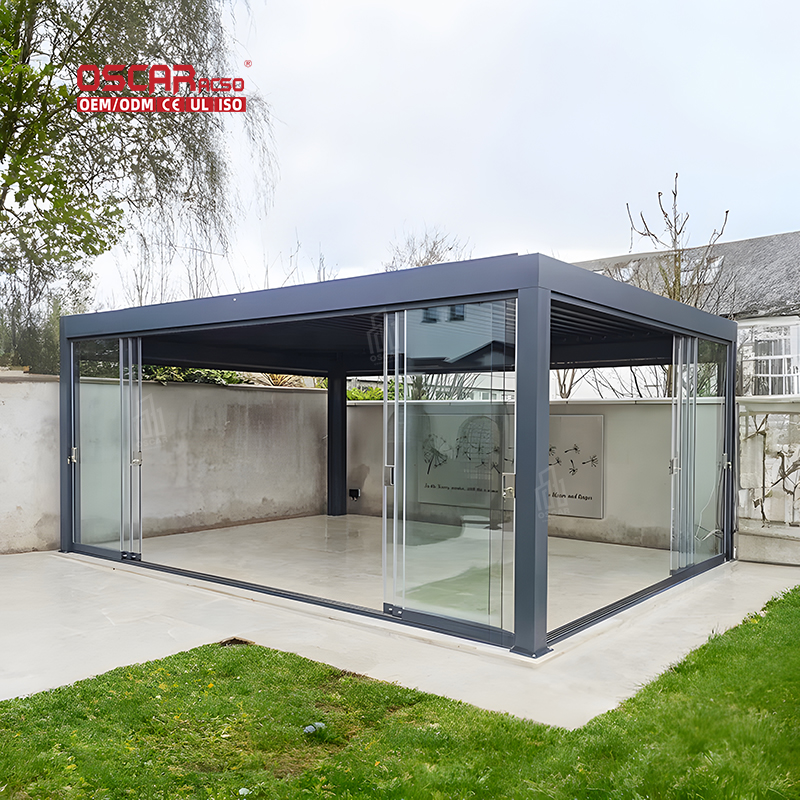Pergola Pronunciation, Master the Word and Elevate Your Garden Talks
Ever found yourself admiring a beautiful garden structure but hesitated to name it for fear of mispronunciation? You\'re ...
Ever found yourself admiring a beautiful garden structure but hesitated to name it for fear of mispronunciation? You’re not alone. The word “pergola” often trips people up, but getting it right can boost your confidence in discussions about garden design and outdoor living. Let’s clear up the confusion once and for all. 🤔
.jpg)
So, how do you actually say “pergola”? The most widely accepted pronunciation is per-GO-la, with the stress on the second syllable. Think of the word “go” placed firmly in the middle. It’s a smooth, three-syllable word: pur-go-luh.
🌍 A Tale of Two Accents: UK vs. US
Pronunciation can dance to a different tune depending on where you are.
- •
In the United States, you’ll most commonly hear per-GO-la. The ‘r’ is pronounced, and the ‘o’ in the second syllable is clear.
- •
In the United Kingdom, it often softens to ”PUR-guh-luh”. The stress sometimes shifts slightly, and the final syllable is more relaxed.

While these are the general trends, remember that personal preference and regional dialects within these countries can also play a role. The key is to be understood, so don’t overthink it!
🚫 Common Stumbling Blocks
Many common mispronunciations stem from a few simple errors. Being aware of them is the first step to avoiding them.
- •
Stressing the wrong syllable: Saying PER-guh-lah (with a strong first syllable) is a very common mistake. Remember, the power is in the middle: per-GO-la.
- •
Swallowing the ‘r’: The ‘r’ in the first syllable should be pronounced. Avoid saying “peh-guh-la” or “puh-guh-luh”.
- •
Mangling the ending: The word ends with a clear “la” sound, like in “lullaby.” Avoid turning it into “lee” or “low”.
🔉 Breaking It Down & Practice Tips
Let’s dissect the word into its phonetic components. This is the best way to master it.
- •
Per: Sounds like “purr” (like a cat) or “fur.”
- •
Go: Sounds exactly like the word “go.”
- •
La: Sounds like “la” in “lullaby.”

Pro Tip: Try saying it slowly and exaggerate the syllables: PUR-GO-LA. Repeat it a few times, then gradually speed up until it flows naturally. Listening to audio examples in online dictionaries can be incredibly helpful.
📜 A Quick Dip into History and Meaning
Knowing a word’s origin often makes it easier to remember. “Pergola” comes from the Latin word pergula, which meant a “projecting roof” or “eave”. It was adopted into Italian before making its way into English.
In terms of meaning, a pergola is an outdoor structure consisting of vertical posts that support cross-beams and an open lattice roof. It’s designed to provide partial shade and serve as a support for climbing plants like wisteria or roses. It’s not a solid roofed structure like a gazebo or a pavilion; its charm lies in its open, airy design.
🗣️ Using It in Conversation & Why It Matters
Now that you can say it with confidence, try dropping it into your next conversation!
- •
“I’m thinking of building a pergola in my garden to support some climbing roses.”
- •
“The wisteria hanging from their pergola looks absolutely stunning this time of year.”

Getting the pronunciation right isn’t about being pedantic. It’s about communicating clearly and effectively. It shows you’re familiar with the subject and helps avoid any momentary confusion when you’re sharing your lovely garden ideas. There’s a certain confidence that comes with knowing you’re saying it correctly. 💪
I believe that life is too short for boring gardens and mispronounced words. Embracing the correct term allows for richer, more precise conversations about creating beautiful outdoor spaces. After all, a well-chosen word, like a well-placed plant, can make all the difference.
✨ Beyond the Pronunciation
Did you know? The structure is incredibly versatile.
- •
You can adorn it with string lights 💡 and flowing drapes for a magical evening atmosphere.
- •
It can be left open to enjoy the sun or fitted with a retractable canopy for more shade options.
- •
It’s a fantastic way to define an outdoor “room” for dining or relaxing.
.jpg)
So the next time you see one, you can not only name it correctly but also appreciate the myriad of possibilities it offers for enhancing a garden. Isn’t it fascinating how one word can open the door to so much creativity?

